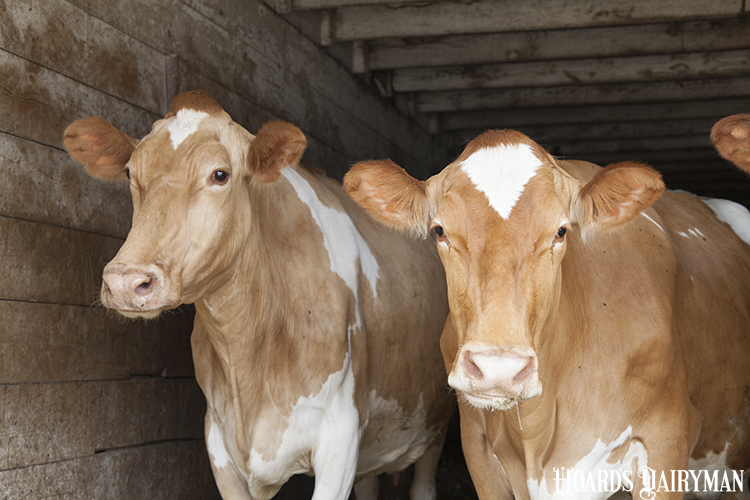
“The reason every single cattle veterinarian and cattle producer entered the business is because they like cows,” remarked Fred Gingrich on the June 2 Hoard’s Dairyman DairyLivestream sponsored by Select Sires. “We like the people of the industry, we like the goals of the industry, and we like producing food, but in the end, if you asked every single person that works with cattle, they like cows.”
Gingrich, a veterinarian and executive director of the American Association of Bovine Practitioners, said that’s a critical part of telling our agriculture story — especially when faced with questions and concerns about animal care practices. This is the case with Colorado Ballot Initiative 16, which would redefine what constitutes a sexual act with an animal to the point that artificial insemination, embryo transfer, transrectal palpation, ultrasound, and other diagnostic procedures would become illegal. Further, the initiative would define the natural lifespan of livestock species and prohibit slaughter until an animal reached 25% of that age. With a “natural lifespan” of 20 years, cattle couldn’t be processed until 5 years of age.
The animal activists bringing this initiative forward want to convey to consumers that their ideas are designed to improve animal welfare conditions. However, farmers, ranchers and agriculturalists know that these practices are critical to being able to best care for animals while producing food for the world.
“We can actually advance the welfare of cattle using these reproductive technologies like artificial insemination,” Gingrich emphasized, noting how A.I. breeding can much more rapidly advance safe, desirable traits such as polled cattle. That’s not to mention the improved safety for cattle and people working with them due to fewer bulls kept on the farm.
Even pregnancy diagnosis allows farmers to better care for their animals. “One of the reasons we use transrectal palpation or ultrasound isn’t just for a ‘yes’ or ‘no’ answer. It’s staging the pregnancy,” the veterinarian said. When a farmer knows when a cow is due, that animal can be dried off at the right time, receive the proper dry period rations, and be assisted with calving if the need arises.
Communicating those benefits will help the industry combat suggestions that are not based on science, Gingrich said. “If we continue to speak for the cow, we’ll have credibility within our own profession as well as with consumers,” he believes.
In the case of Colorado’s initiative, animal agriculture must continue to relay the truth about the proposals because, as Gingrich said, “This will not only not improve the welfare of animals, but it also has the potential impact of making the welfare of animals worse.”
To watch the recording of June 2 DairyLivestream, go to the link above. The program is also available as an audio-only podcast; click here to listen or download.
An ongoing series of events
The next broadcast of DairyLivestream will be on Wednesday, June 30 at 11 a.m. CDT. Each episode is designed for panelists to answer over 30 minutes of audience questions. If you haven’t joined a DairyLivestream broadcast yet, register here. Registering once registers you for all future events.








